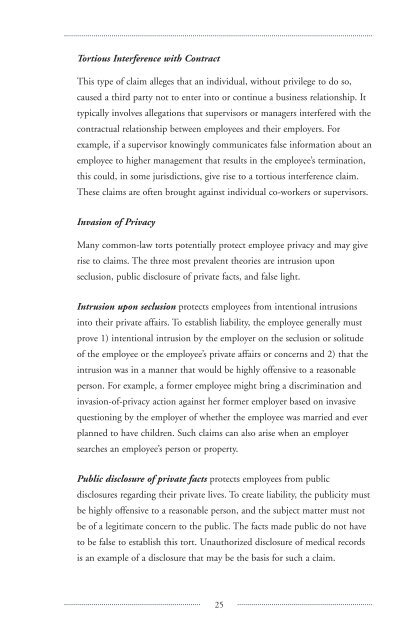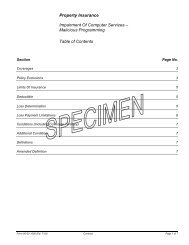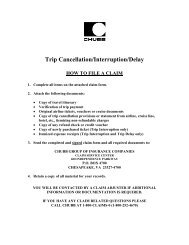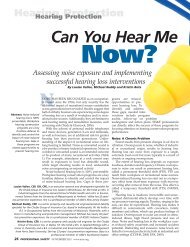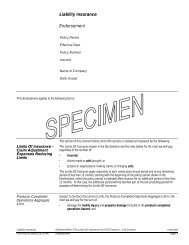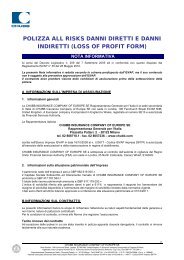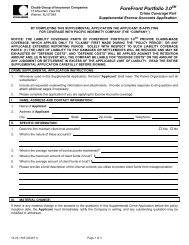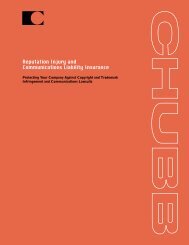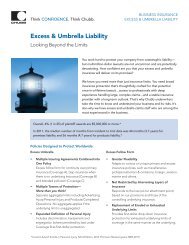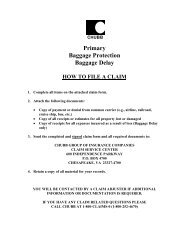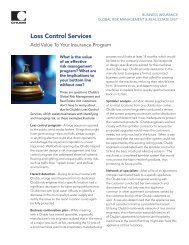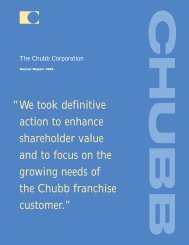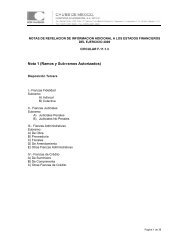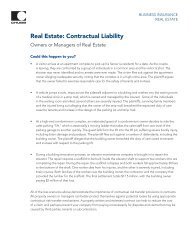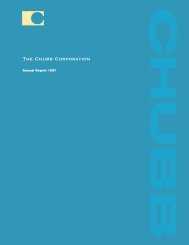Employment Practices Loss Prevention Guidelines - Chubb Group of ...
Employment Practices Loss Prevention Guidelines - Chubb Group of ...
Employment Practices Loss Prevention Guidelines - Chubb Group of ...
Create successful ePaper yourself
Turn your PDF publications into a flip-book with our unique Google optimized e-Paper software.
Tortious Interference with Contract<br />
This type <strong>of</strong> claim alleges that an individual, without privilege to do so,<br />
caused a third party not to enter into or continue a business relationship. It<br />
typically involves allegations that supervisors or managers interfered with the<br />
contractual relationship between employees and their employers. For<br />
example, if a supervisor knowingly communicates false information about an<br />
employee to higher management that results in the employee’s termination,<br />
this could, in some jurisdictions, give rise to a tortious interference claim.<br />
These claims are <strong>of</strong>ten brought against individual co-workers or supervisors.<br />
Invasion <strong>of</strong> Privacy<br />
Many common-law torts potentially protect employee privacy and may give<br />
rise to claims. The three most prevalent theories are intrusion upon<br />
seclusion, public disclosure <strong>of</strong> private facts, and false light.<br />
Intrusion upon seclusion protects employees from intentional intrusions<br />
into their private affairs. To establish liability, the employee generally must<br />
prove 1) intentional intrusion by the employer on the seclusion or solitude<br />
<strong>of</strong> the employee or the employee’s private affairs or concerns and 2) that the<br />
intrusion was in a manner that would be highly <strong>of</strong>fensive to a reasonable<br />
person. For example, a former employee might bring a discrimination and<br />
invasion-<strong>of</strong>-privacy action against her former employer based on invasive<br />
questioning by the employer <strong>of</strong> whether the employee was married and ever<br />
planned to have children. Such claims can also arise when an employer<br />
searches an employee’s person or property.<br />
Public disclosure <strong>of</strong> private facts protects employees from public<br />
disclosures regarding their private lives. To create liability, the publicity must<br />
be highly <strong>of</strong>fensive to a reasonable person, and the subject matter must not<br />
be <strong>of</strong> a legitimate concern to the public. The facts made public do not have<br />
to be false to establish this tort. Unauthorized disclosure <strong>of</strong> medical records<br />
is an example <strong>of</strong> a disclosure that may be the basis for such a claim.<br />
25


